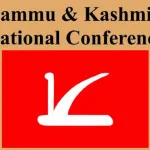World Teachers’ Day is celebrated annually on 5th of October to acknowledge and appreciate the role, teachers play in shaping the future of nations across the world by igniting young minds to dream bigger, and to revisit the policies aimed towards capacity building of teachers, broadening their role in nation building and making them believe that they are the most important stakeholders. The day commemorates the anniversary of the adoption of the 1966 ILO/UNESCO recommendation concerning the status of teachers, which sets a benchmark regarding their rights and responsibilities.
Teachers’ Day is a celebration or more aptly a festival dedicated to admire educators/mentors for their vital role in society. In India, Teachers’ Day is celebrated on 5th September, a date chosen to honour Dr. S. Radhakrishnan, a revered scholar, philosopher, and the second President of India for his dedication to academic excellence and role in shaping modern India’s educational framework. The day reminds us India’s unequivocal commitment to public education for development, social justice and democracy, the vision perceived and rolled out by its first Education Commission (1948-49) chaired by Dr. Radhakrishnan.
Education is vital for achieving full human potential and developing an equitable and just society. Providing universal access to quality education is the key to India’s leadership on the global stage in terms of economic growth, social justice, equality, and scientific advancement. The teacher must be at the centre of the essential reforms in the education system because it plays a pivotal role in shaping the future of a nation by nurturing students and driving educational progress.
The National Education Policy (NEP-2020) has been designed to help re-establish teachers, at all levels, as the most respected and essential members of our society, because they truly shape our next generation of citizens. It must do everything to empower teachers and help them to do their job as effectively as possible besides helping recruit the very best and brightest to enter the teaching profession, by ensuring respect, dignity, autonomy and sufficient livelihood.
World Teachers’ Day 2024, as is envisaged in its theme, “Valuing teacher voices: towards a new social contract for education” highlights the need to harness the potential of teachers fully by hearing and honoring their voices in decision-making processes that affect the education system in general and their profession in particular. Ignoring the voice of teachers has negative effects on both teacher status and motivation, and on the effectiveness of teacher programmes and overall education policy (UNESCO).
While outlining the importance of education in nation building and creating a peaceful atmosphere, free of racism, colonial mind set and religious intolerance across the globe, Nelson Mandela has said, “Education is the strongest weapon that can be used to change the world”. It is an established fact that nations have not become great due to vast geographical areas but due to competent human resource, a competitive curriculum that instils in its learners disciplinary knowledge and skills, critical and reflective thinking, analytical and scientific reasoning, digital literacy, communication skills, tolerance and moral and ethical values, andabove all a world class educational ecosystem and academic ambience within educational institutions.
I am reminded of a quote of Albert Einstein, “I don’t teach my pupil, I only provide them the conditions to learn”. A good education institution is one in which every student feels comfortable and cared for, where a safe and stimulating learning environment exists, where a wide range of learning experiences are offered, and where good physical infrastructure and appropriate resources conducive to learning are available to all students. However, among various threats that arecropping up in our educational institutions, the rampant use of smart phones by teen age students coupled with growing tendency of lack of respect for their teachers and use of psychoactive drugs are the worst.
Alama Iqbal in one of his couplets in Bal-e-Jibril says, “Huwi Na Zagh Mein Paida Buland Parvazi; Kharab Kar Gayi Shaheen Bache Ko Sohbat-e-Zagh” meaning that earth-bound crows cannot aspire to the eagle’s flights, but they corrupt the eagle’s lofty, noble habits. Being the leaders of the educational system, the teachers need to sanitize the educational institutes of all the evils by regular counselling and awareness programmes and enforcement of already existing laws.
Legislation of some new laws, to be formulated in consultation with teachers, has become overdue. To elucidate the significance of a good company for a person, Sheikh Saadi in ‘Gulistan’ has so beautifully narrated an anecdote that once his friend gave him a sweet smelling piece of clay. He asked the piece of clay if it was musk or perfume because he was charmed by its delightful fragrance. The piece of clay replied that it was only worthless clay but it had remained for a long time close to a rose and the virtue of its companion transformed it otherwise it wasstill the same old dust.
As we celebrate Teachers’ Day, it’s an opportune moment to ponder over the evolving landscape of education and the pivotal role educators play in shaping the future.The gap between the current state of learning outcomes and what is required must be bridged through undertaking major reforms that bring the highest quality, equity, and integrity into the system, from early childhood care and education through higher education.
With rapid technological advancements and changing global needs, the education sector is undergoing a significant transformation, and at the forefront of this change are the dedicated teachers and institutions embracing innovation to prepare students for tomorrow’s challenges. We are witnessing a hybrid model of education that combines the best of traditional and digital learning methodologies. Educators are tasked with not only teaching the skills but embodying them, constantly updating their own knowledge and methods to stay relevant in a fast-changing world.
While embracing digital tools, educational institutions are also focusing on preparing students for the evolving needs of industry. Prof. (Dr.) Preeti Bajaj, Director General of KIET Group of Institutions, emphasizes the importance of this approach: “Educators today are tasked with preparing students not just for the jobs of today, but for the challenges and opportunities of the future. Through industry collaborations and personalized learning experiences, we’re aiming to shape a generation of professionals who are not only technically proficient but also adaptable and empathetic”.
On World teachers Day 2024 I regret to share with the readers that the values of our society have deteriorated vis-à-vis teachers. Teachers are not respected by the public in general and students in particular to the extent they deserve. I have never seen a political leader, bureaucrat, police officer or a judge giving due respect to a teacher in his/her office; instead they are ignored or even looked down upon. In recently held verification of PPOs in treasuries I have witnessed retired teachers of senior citizen category standing in queue for hours in front of young employees of finance department.
While advocating for the dignity of teachers in society I am equally constrained to request the teachers, irrespective of their level, to introspect themselves and try to inculcate in themselves the maximum of attributes that are essential for a teacher to become great like Aryabhata, Brahmagupta, Chanakya, Einstein, Ibn Sina, Al-Biruni, Gazali, Savitri Bhai Phule, Dr.Radha Krishnan, Dr. APJ Abdul Kalam and many others. Inclusion of moral education in curriculum right from kindergarten is not only necessary but has become inevitable.
Societies that have achieved the milestone of greatness in literature, philosophy, and STEM courses have the humility to honour their teachers in best possible ways. Professor Ashfaq Ahmad has narrated a wonderful incident in one of his books – Zavia, showcasing the extent of respect that educationally evolved countries give to their teachers. He writes that as a young Professor in Rome University he was fined by a policeman for taking a wrong turn while driving his car. After failing to deposit the fine in post office on time he was summoned by court. The judge, hearing his case, stood up from his chair after coming to know that he was a teacher and proclaimed, “Teacher in court! Teacher in court!” All the people present in the court room followed the suit by standing up. The judge ordered his peon to get a chair for the teacher to sit in. After deciding his case when the Professor left the judge’s chamber, he was escorted by the judge, the lawyers and all the people present in court room up to his car.
Every day would be a Teachers’ day in real sense if the whole world pledges to become Rome-like in terms of respect shown to teachers. India ranks at serial 8 with a score of 58 on a hundred point scale when it comes to valuing its teaching workforce in the 35-country Global Teacher Status Index report 2018 by Varkey Foundation London. The top three ranks have been achieved by China, Malaysia and Taiwan with a score of 100, 93 and 70 respectively. Countries at the lowest rank include Brazil and Israel with a score of 1 and 6.65 respectively. To establish the extent to which parents would encourage their children to enter the teaching profession was used as an indicator of respect for teachers by Varkey Foundation. Countries such as China, Malaysia and Taiwan proved to hold a higher level of respect for teachers.
A teacher is an architect of a nation. Celebrating teachers’ day by felicitating them with cakes, sweets and cards etc. has become a fashion. The biggest tribute to a teacher on this day would be to recognise his/her services as an architect and pay due respect to him. Kabir, the 15th century mystic poet of India has said, “God and teacher, both are standing before me. Whom should I pay obeisance first? I hold the teacher in highest esteem who showed me the way to God”. Mother’s lap is the first school where a child learns manners and principles. So it is the duty of parents to train and groom their children in a comprehensive way to inculcateintegrity, modesty, ethics, tolerance and respect for elders especially teachers in them.
The story of Haroon-ur-Rashid, the fifth Abbasid Caliph and an icon of Islamic golden age, who ruled from 786 to 809 AD is heart touching. His two sons, Mamun and Amin compete and argue with each other in order to hold the slippers of their teacher Imam Kisaa’i (RA), the great Muhaddis, after he ended his prayers to help him put his feet inside the shoes. When Caliph Haroon-ur-Rashid heard about this incident, he called Imam Kisaa’I (RA) to his court and asked him, “Who is the most respected person in the kingdom”? The Imam replied, “Perhaps, it is the Caliph”. To this Haroon-ur-Rashid replied, “No! A person of immense respect is the one who when rises, both the sons of the caliph rush forward to help him wear his shoes”.
This National Education Policy (NEP-2020) envisions an education system that contributes directly to transforming India sustainably into an equitable and vibrant knowledge society, by providing high-quality education to all, and thereby making India a global knowledge superpower. This is a lofty goal that can only be achieved by collective efforts of policy makers, teachers and other stakeholders.
Allama Iqbal (RA), the poet of the East, while complaining against the prevailing education system and the teachers says in Bal-e-Jibril, ‘Shikayat hai mujheya Rab! Khudawand-e-maktab se, Sabaq shaheen bachonko de rahe hain khaak bazi ka”! (O Lord, I have complaint against teachers for they are teaching the eaglets to grovel in the dust).
To Allama Iqbal (RA), a teacher is like a builder whose industry is to build and develop the soul of a human and the youth is like the eaglets and it is the responsibility of the teachers and the educational system to give them the strong wings to soar high, and according to his belief, a society cannot progress if it does not have progressive and enlightened teachers. On this year’s World Teachers’ day let’s take pledge to transform ourselves into teachers Allama Iqbal (RA) had dreamt about.
(The Author is Principal (Rtd.) J&K Higher Education Department. Email: [email protected])








